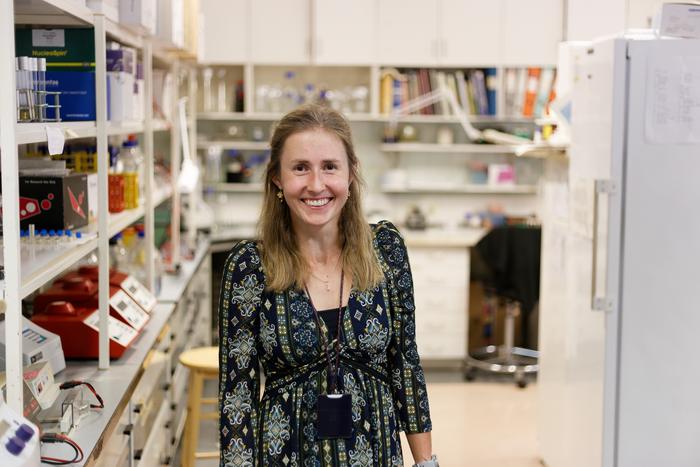|
The two-way defence mechanisms of bacteria and phages, viruses of the bacteria, can offer a solution to antibiotic resistance problems. Hedvig Tamman, Associate Professor of Genetics at the Institute of Molecular and Cell Biology, University of Tartu, received the Starting Grant from the European Research Council (ERC) to study the microbial arms race.
Antibiotic resistance is a growing problem in the treatment of infectious diseases caused by bacteria. Bacteria-attacking viruses can offer new solutions, for example, for developing antibiotics and their additives. The prospect of using phages in the fight against pathogenic bacteria has long been recognised, but their very high specificity and unpredictable reproduction have limited their wider use in medicine.
Tamman’s study bridges several gaps in the research on bacteria, phages and their interaction. “As bacteria and phages have co-evolved since the beginning of time, there is a kind of arms race between them – phages develop a mechanism to overcome all the bacterial defence systems,” said Tamman.
On the one hand, the researcher studies how bacteria defend themselves against phages. For example, bacteria have defence mechanisms against phages and other stressors, such as the toxin-antitoxin system in chromosomes and the stringent response – the latter puts the bacterium, when stressed, into a kind of hibernation. This helps it survive the antibiotic attack and supports the development and spread of resistance. On the other hand, Tamman hopes to discover what helps the phages paralyse the bacterial stringent response.
“Although the bacterium Pseudomonas putida that I study is not medically important, it is related to human and plant pathogens. Knowing how phages fight this bacterium gives us ideas that could help us fight bacterial diseases in the future,” Tamman said.
The ERC Starting Grant for early-stage researchers is €1.5 million over five years. The project “Deciphering stringent response proteins and toxin-antitoxin systems in the arms race between bacteria and phages” (abbreviation PhaBacArms) starts at the beginning of 2024 and runs until the end of 2028.
Hedvig Tamman defended her PhD in genetics at the University of Tartu in 2016. Her doctoral thesis dealt with the functionality of chromosomal toxin-antitoxin systems of the bacterium Pseudomonas putida. From 2016 to 2021, Tamman was a postdoctoral researcher at the Free University of Brussels, where she worked on determining bacterial stress responses and the structure of proteins involved in these responses.
|





